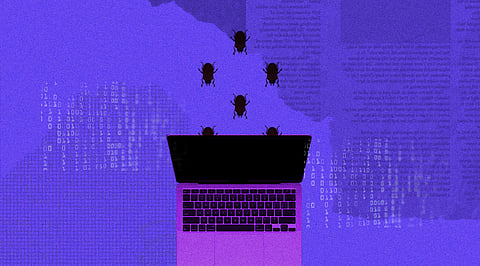

Personal data is the most crucial sensitive information about any user in this digital world. There is utmost need for protection of personal data from the hands of AI bots as well as cybercriminals. Users are required to implement effective data privacy to protect personal data from AI bots. AI bots are the hyper-personalized chatbots created from artificial intelligence and NLP. Smart device users must follow certain steps to effectively and efficiently protect personal data from AI bots.
Organizations leverage chatbots for providing sufficient and efficient service to customers at any period of time. It helps to offer hyper-personalized services for attracting customers and driving customer engagement. But the main issue is when users talk with an AI bot, they tend to share more personal data through conversational interaction— no data privacy.
An organization must protect personal data from AI bots by understanding the purpose of implementing the chatbot. There are methods for deep understanding such as research on the user responses to enhance user adoption as well as productivity. One can protect personal data if there is sufficient knowledge of the supply of which type of real-time data to prepare for AI bot data privacy concerns.
Organizations need to implement an SLA or Service Level Agreement for the protection of personal data. It needs uptime requirements, quality expectations, and other issues to ensure the agreement addresses the AI bot encryption. There are some issues involved acknowledged by SLA such as the maintenance of SSAE-16/SSAE-18 certification and SOC 2 compliance, and many more for data privacy.
Organizations can start an AI bot Proof-of-Concept (PoC) before widely deploying the service to customers. It is necessary to check out the coverage of the AI bot, influencing factors, deployment plan, and many more. AI bots should be more intuitive for the protection of personal data. There should be rules and regulations regarding the level of information needed to share in the conversational interaction.
Employees need to pay attention to small AI bot data leaks for avoiding serious consequences in the future. There is the availability of multiple personal data being shared in the conversation. Thus, there can be a potential opportunity to retrieve some pieces of personal data and add the points to discover the important data.
Employees, dealing with AI bots to drive customer engagement, should implement a yearly audit of these artificial intelligence models for maintaining data privacy. There should be secure passwords and two-way authentications for the protection of personal data. One should also close any accounts that are not active anymore.
One should not overshare any personal data apart from the necessary information needed to have a conversational interaction with these bots. Cybercriminals can also gain access to private and sensitive information for phishing and other cyberattacks. Cybercriminals can hack an organization's system and seek the necessary information from the AI bot.
One should not use one email account for personal, professional, and conversational interaction with AI bots. Users should create two or more email accounts for different purposes to be extra careful. It will help to protect personal data from AI bots as well as potential hacks. If any one of the accounts is hacked then the rest of the confidential data will be protected.
There are multiple AI bot frauds and scams available on the internet to steal sensitive and confidential data. Thus, customers and users should be aware of these scams and try not to get into the traps for keeping data private. These can be operated by cybercriminals to gain data for their usual activities.
Join our WhatsApp Channel to get the latest news, exclusives and videos on WhatsApp
_____________
Disclaimer: Analytics Insight does not provide financial advice or guidance. Also note that the cryptocurrencies mentioned/listed on the website could potentially be scams, i.e. designed to induce you to invest financial resources that may be lost forever and not be recoverable once investments are made. You are responsible for conducting your own research (DYOR) before making any investments. Read more here.
